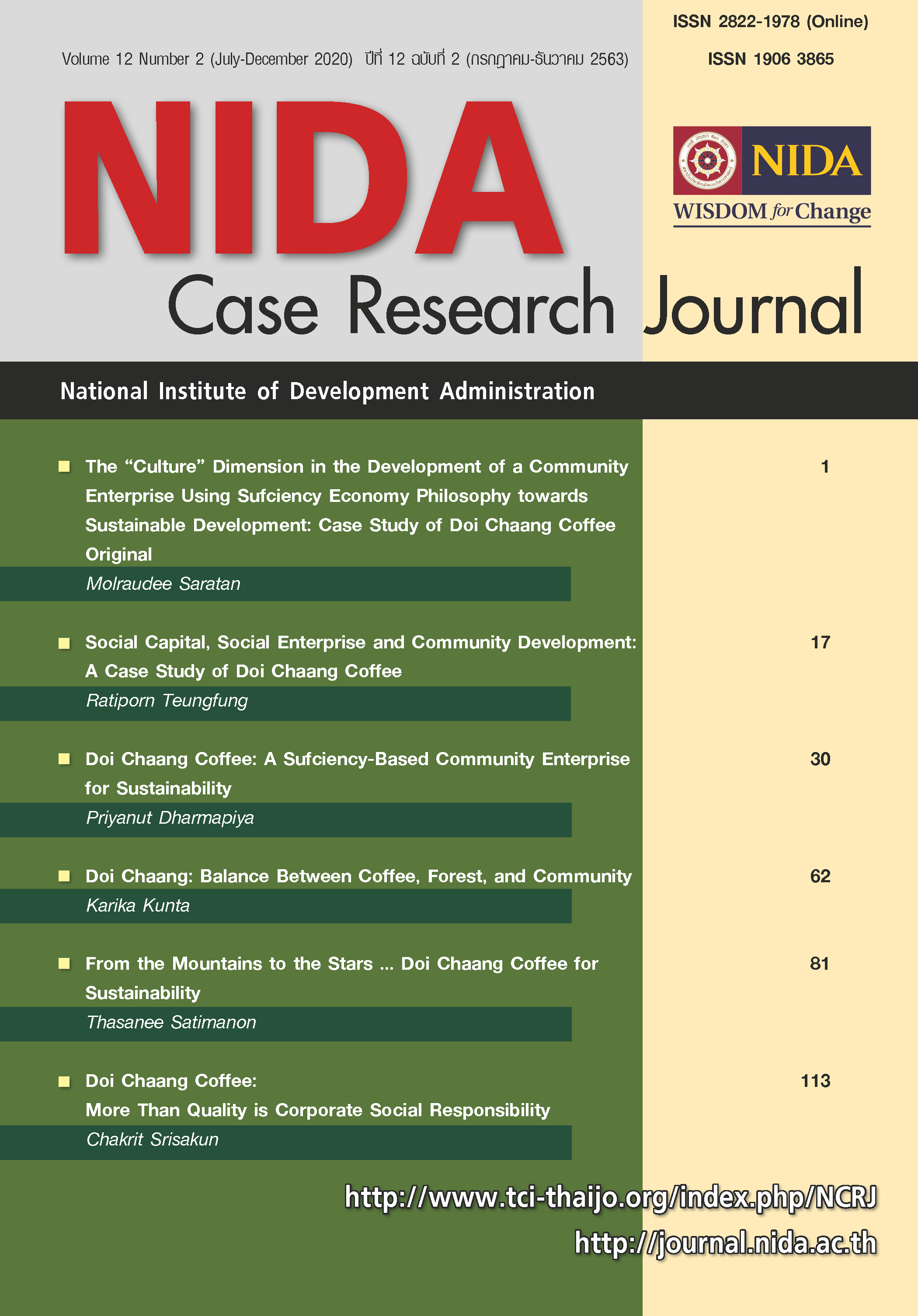The "Culture" Dimension in the Development of a Community Enterprise, using Sufficiency Economy Philosophy towards Sustainable Development: Case Study of Doi Chaang Coffee Original
Keywords:
Sustainability, Sufficiency Economy Philosophy, Community enterprise, CultureAbstract
In the Doi Chang mountain village, comprising many ethnic groups, the Akha tribe was the tribe that was the most looked down upon. Most village headmen did not come from the Akha tribe. Panachai Phisailert, also known as Adel, is an Akha. He was one of the 14 Akha families that were given coffee plants by His Majesty King Rama 9. Adel quit school after completing Grade 2. He was the first one in his village to work abroad in Japan. In 1998, when the village leader of Doi Chang was about to retire, most villagers, who were Akha people, wanted to choose Adel as the new village head, hoping that he would be able to bring his business knowledge and networks from the town (he had opened a shop in Chiang Mai) to help the village. His father, Pico, was respected in the village and the villagers thought that Adel, with his youthful energy, would be good for the village. Adel returned there to be selected as the village head for 18 months. Adel then decided to get help from Wicha Phromyong to establish a community enterprise selling coffee in 2003. If this were to happen, Adel would have to identify any problems regarding the cultural dimension at that time and the expected cultural outcomes after the development of a coffee community enterprise. How could Adel use this coffee community enterprise to develop the culture of the tribes to achieve the expected results?
Downloads
Published
How to Cite
Issue
Section
License
Copyright (c) 2022 NIDA Case Research Journal

This work is licensed under a Creative Commons Attribution-NonCommercial-NoDerivatives 4.0 International License.





